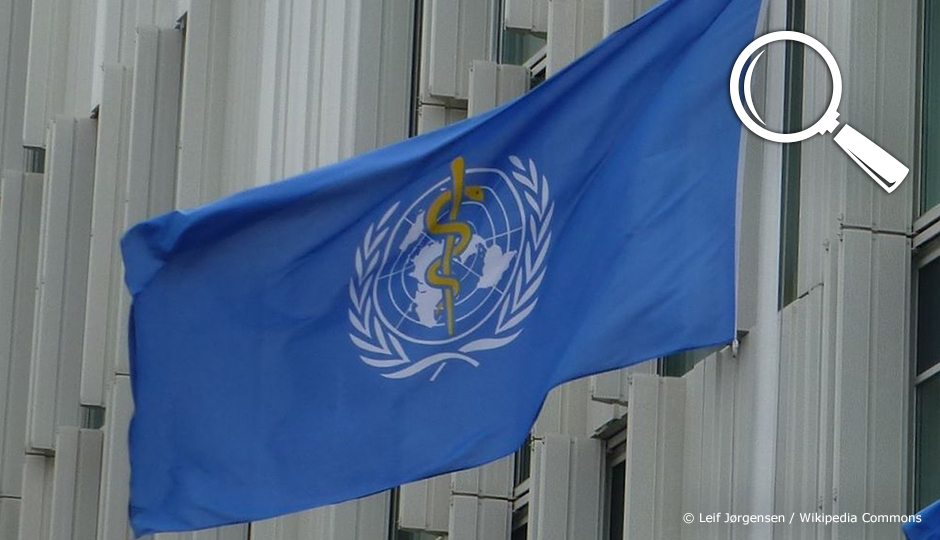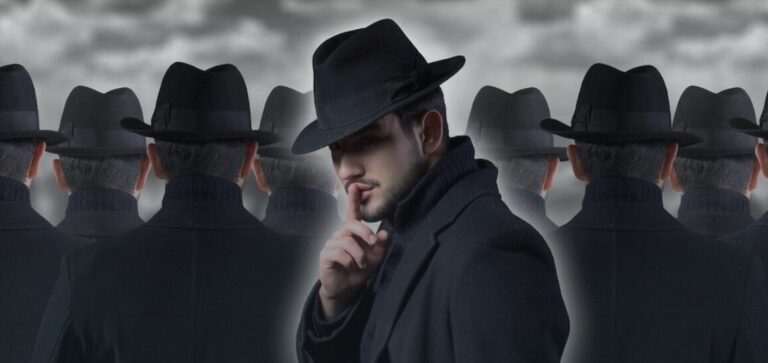Auteur : Agence Science Presse - Maxime Bilodeau
A rumour about the World Health Organization (WHO) is being spread in several languages. It claims the WHO banned autopsies of patients who died from COVID-19 to prevent the truth about the disease from coming to light. It’s easy to prove this claim is false. It’s also based on ignorance of the WHO’s real powers, the Rumour Detector finds.
Origin of the rumour
The starting point was a claim that Italian doctors discovered that a bacterium, and not a virus, caused the deaths associated with COVID. They supposedly made this “discovery” by disobeying “the WHO law prohibiting the autopsy of corpses from the coronavirus”. Since the end of May, various versions of this “theory” have been shared in several languages, including French, English and even Tagalog, a Philippine dialect.
The facts
The reality is the opposite: the WHO Guidance clearly states that it is completely possible to autopsy a body presumed or confirmed to be infected by COVID-19. This is conditional on following certain safety measures to avoid any risk of contaminating the staff who perform these autopsies. For example, these procedures must be performed “in an adequately ventilated room, i.e. at least natural ventilation [...], or negative pressure rooms […] when using mechanical ventilation”. The WHO Member States, like Canada, base their own guidelines on these recommendations.
Similar recommendations are part of the WHO’s global mission. In emergencies, such as a pandemic, its role is to establish standards to harmonize the international community’s response. In the case of COVID-19, the WHO, starting at the end of January, urged countries to “implement a global public health approach” to prevent infections.
Recommend, but not order
However, the WHO cannot compel its members to follow its guidance. Even if it had recommended not performing autopsies (which it never did), it wouldn’t have any power to make anything compulsory.
Other UN agencies, such as the World Trade Organization (WTO), have powers, such as the WTO’s trade disputes resolution mechanism. But the WHO has no power to give incentives or coerce. It relies instead on a voluntary approach. That explains why a country like Sweden could manage the COVID crisis its own way, without imposing lockdowns as strict as elsewhere.
This lack of powers contributes to the criticisms. For example, the WHO was blamed for its management of the H1N1 virus crisis in 2009. The criticisms particularly concerned the transparency of its decision-making processes. It was also blamed for a late response to the Ebola epidemic in 2014. The subsequent reforms concerning health emergencies didn’t prevent attacks on the WHO this year. This time it was blamed for its alleged deference to China.
The United States was the source of this accusation and threatened to end its relationship with the WHO. It suspended its monetary contribution of $553 million for the 2020-2021 fiscal year. This represents over 20% of the WHO’s total annual budget, which is currently about $2.4 billion. In comparison, several observers noted during the American withdrawal, this is less than the budget of certain university hospitals, like the one in Cleveland, Ohio. That hospital had a budget of $3.9 billion in 2017.
In fact, the WHO has suffered from chronic underfunding for a long time. The American withdrawal could make it even more dependent on funds from philanthropic organizations, like the Bill & Melinda Gates Foundation. That Foundation donated $341 million to the WHO in 2020-2021, at the risk of fuelling other conspiracy theories.





